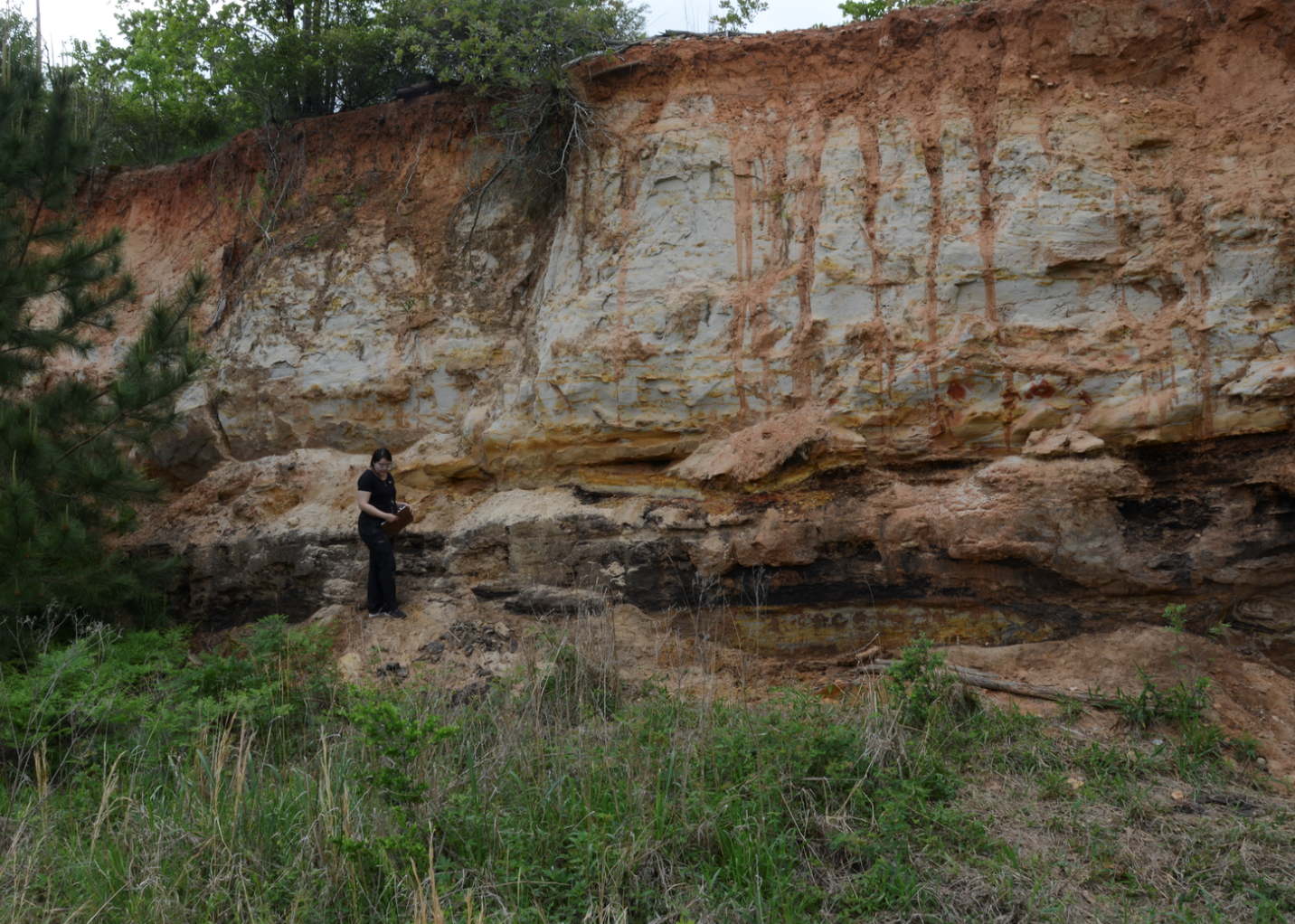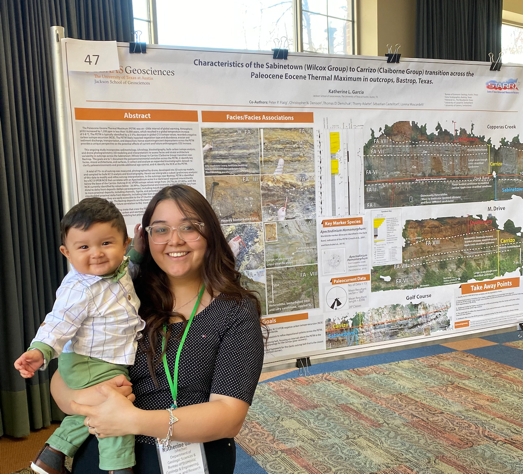March 21, 2023
Consistently about 10% of graduate students at the Jackson School of Geosciences are caregivers, some of whom become parents during their graduate studies. To learn more about what doing geoscience and being pregnant might be like, we spoke to Katherine Garcia regarding her experiences of pregnancy and fieldwork. For those of you with a family or considering expanding your family - you can read more on the JSG website about what JSG currently offers in terms of parental accommodations.
Please note, this blog post is only intended to record individual experiences, none of the authors are medical doctors, and your experience of pregnancy may be different. Please seek the advice of a doctor for your specific case. Katherine’s responses were lightly edited for clarity.
Currently, I am a second-year master’s student in the Energy & Earth Resources program (EER). My research focuses on utilizing the information contained within ancient sedimentary rocks to identify evidence of sedimentary processes associated with the Paleocene-Eocene Thermal Maximum (PETM).
My name is Katherine Garcia, and my fiancé is Jonathan Alvarado. We are both in our early twenties and enjoy spending our time together traveling, hiking, camping, and fishing.
As a first-year graduate student, I experienced overwhelming feelings while transitioning from undergraduate to graduate school. On top of that, the news of my pregnancy was an unexpected surprise that left me filled with fear, worry, and a hint of excitement.
In my view, I consider myself relatively young and made the decision to have my son at a young age. Thankfully, my partner was incredibly supportive and understood how stressed I felt about the entire situation.

The early stages of my pregnancy were relatively manageable compared to the last few weeks, during which I experienced severe swelling in my feet and difficulty sleeping. Morning sickness was a challenging symptom of my pregnancy that I had to contend with.
Dealing with exhaustion was particularly difficult, especially since I had to attend 8:00 AM classes and struggled to find nearby parking, which the university provides no accommodations for. In instances where the bus from the East parking garage didn’t arrive, I had to walk for 30 minutes to get to class or miss it altogether. I eventually found out that I could get temporary accommodation from the state office.
During the summer, I had four drill cores that needed logging for my research. However, the warehouse was incredibly hot, and I struggled with swollen legs from standing for hours on end. Additionally, crushing rock samples took a long time since I had to take numerous breaks to rest my feet. What should have taken only a few minutes ended up dragging out for a couple of days.
I had my baby on June 29th and returned to classes in August. The entire month of July was used as my own time.
During the last few months of my pregnancy, I found it increasingly difficult to stand for long periods and felt that I needed more rest than I was able to get. This was particularly challenging because I was no longer able to do fieldwork, prepare samples, or log core, which had been my main focus during the summer. As a result, my timeline had to be adjusted, but I am now working diligently to wrap up this semester. Despite the demands of commuting back and forth between Austin and Houston every weekend to spend time with my baby, I am determined to complete my work to the best of my ability.

To ensure my safety and understanding of the geological environment during fieldwork, my advisor Dr. Peter Flaig accompanied me. His guidance and support during my field studies helped me stay on track to complete my degree.
Throughout my last semester of graduate school, my mother and mother-in-law provided invaluable support by helping me care for Nathan. This was the most financially feasible option for us, given the high cost of childcare. Knowing that Nathan was in good hands allowed me to focus on my studies.
As I work on my thesis, my fiancé Jonathan has been an unwavering source of support, offering patience, care, love, and undivided attention. His assistance allows me to concentrate during crunch time. As the saying goes, it takes a village to raise a child, and Jonathan has been one of the most supportive individuals in my village.
Finally, the faculty and staff at the BEG were also incredibly helpful when I needed a helping hand.
How long I lasted!

You can read more on the Jackson School of Geosciences website about what JSG currently offers in terms of parental accommodations.